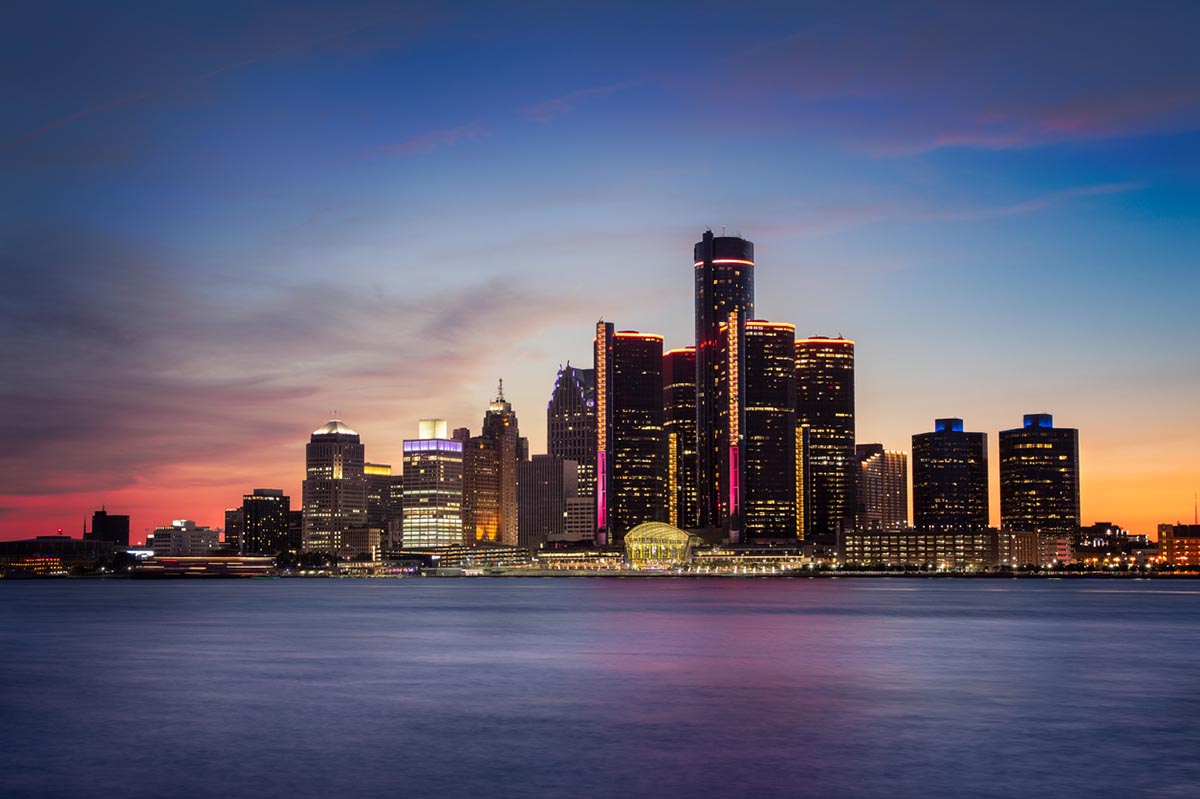Billionaire Dan Gilbert has posted a lengthy postmortem on Detroit's first round loss in the Amazon HQ2 sweepstakes.
He pooh-poohs the idea that talent was the reason, instead suggesting it was Detroit's negative reputation. (If you didn't see it already, Crain's Detroit Business ran an in-depth story on how Gilbert and the Detroit team put together their bid).
I would argue Detroit does have something of a talent problem. It has a large existing talent pool because it's a large metro area. But that talent is mostly already being utilized. So to staff up Amazon in that environment, you'd need to poach the talent from elsewhere and assume that the skills match is there between occupations.
The other alternative is hiring new people coming into the region, and this is where Detroit falls short. Detroit only grew its percentage of 25- to 34-year-olds with a college degree by 5 percent between 2000 and 2016. It's done better in recent years than in earlier ones, but that's anemic performance. Detroit's brain gain came mostly in the older age cohorts that are not Amazon's bread and butter. By contrast, Pittsburgh's headline demographics look bad, but it grew its 25- to 35-year-olds with college degrees by 52 percent during the same period — a higher percentage growth rate than any other Midwestern region. (Three of the top four Midwestern cities on this metric, Pittsburgh, Indy, and Columbus, made the Amazon finalist list. Grand Rapids was the other, and at just barely a million people is too small for Amazon most likely).
That's not to say that Gilbert's necessarily wrong about Detroit's negative reputation. Reputation is a lagging indicator. It's what Jim Russell likes to call a “mesofact,” one that changes in people's heads over a medium-scaled period of time.
With regards to the city's reputation, Gilbert has a very good idea in his memo—bring people to Detroit:
What is the solution to finally overcome the chasm between Detroit's reputation and reality?
It will take many strategies and tactics to overcome this fundamental challenge.
One highly-effective remedy to the fallout of a half century or more of reputational damage is to bring people physically HERE to see, touch and feel the excitement, opportunity, growth and reality that is the Detroit of 2018 and beyond.
We have witnessed for ourselves, time after time, those who have recently visited the Motor City leave with a completely turned around, positive impression of our city. An impression that is light-years closer to reality than the old narrative.
There are many innovative people already in this region who are capable of developing creative strategies and tactics required to attract people to Detroit and the area.
Once we get them here, we've got them.
The guy that Gilbert needs to download the formula from on how to do that effectively is Tony Hsieh, founder of Zappos and the Downtown Project in Las Vegas. Hsieh set out to do nothing less than to completely transform downtown Las Vegas. It was an extraordinarily audacious undertaking — maybe too audacious. But nobody did a better job of selling what they were doing than Tony Hsieh. He critically understood that if he wanted to pull off his project, he needed to create the right brand, and attract people to be part of it.
One of the ways Hsieh did this was by renting out (or buying) 50 apartments in a downtown high rise and turning them into free hotel rooms called “crash pads.” He'd then invite journalist, prospects, anyone who could potentially be part of his project or help get the word out, and invite them to come stay for free in one and check the place out. He also made sure they got the right experience. As I wrote:
Vegas is different. Downtown Project, and Tony personally, are aggressively involved in sales. They leased out 50ish units in a residential high rise called the Ogden (one of only a handful of residential properties downtown). They use these as what they call “crash pads.” They are for people who want to come check out downtown Vegas and the Downtown Project to stay free. They also make sure to showcase what they are doing. And they are going to try to show you how downtown Vegas could be a fit for you or your business. Tony himself is personally involved with this. I was able to take a small group walking tour with him, and part of his agenda was trying to sell a small retailer on setting up shop in a retail development they called Container Park. Here's this guy who is a multi-mega-millionaire personally recruiting a small business. Hard to imagine there's a lot of that going on in other places. Think having a tech rock star personally making the ask helps bring small tech outfits to Vegas? You bet it does. Unlike 99 percent of other cities in America, the downtown Vegas crowd is actually asking for the business.
Gilbert is exactly the kind of guy who could do something similar in Detroit, tailored to what they are trying to accomplish.
This piece originally appeared in Crain's Chicago Business
______________________
Aaron M. Renn is a senior fellow at the Manhattan Institute and contributing editor at City Journal. Follow him on Twitter here.
This piece originally appeared in Crain's Chicago Business
